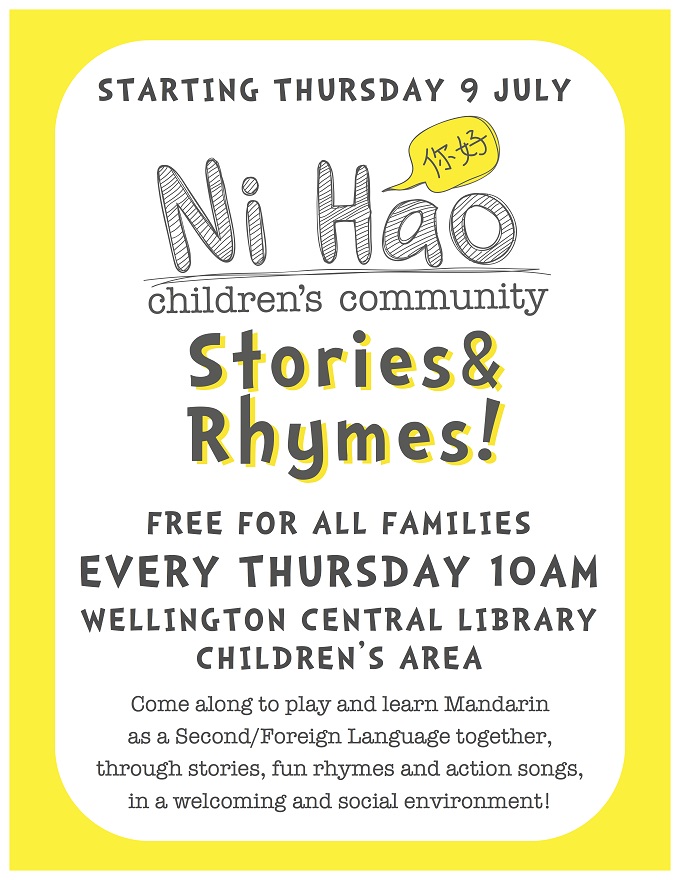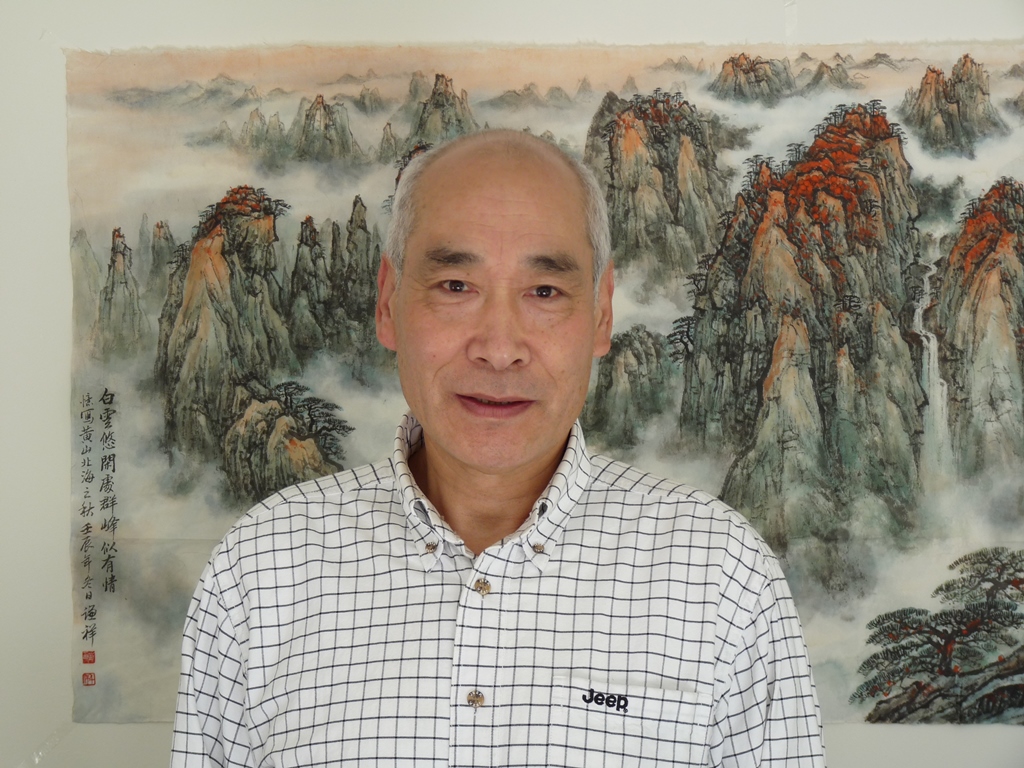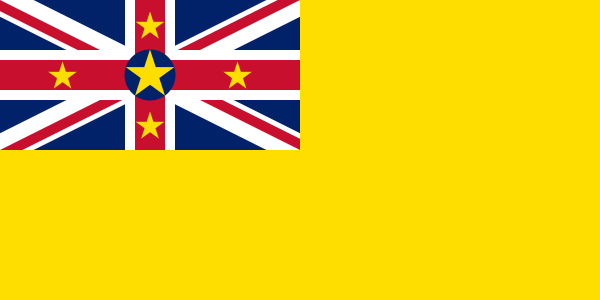Ni Hao! Experience Chinese culture and language at Wellington City Libraries. There are lots of fun things to do such as Tai Chi, a Chinese film night, Nihao Stories & Rhymes for children, and much more. All for free. Read on to find out more…
 Nihao Stories and Rhymes:
Nihao Stories and Rhymes:
The popular Nihao Stories & Rhymes sessions in Chinese will take place at Central and three branch libraries during Chinese Language Week.
– Central library: 10:00-10:30am, Every Thursday
– Karori library: 10:30-11:00am, Tuesday 8 September
– Johnsonville library: 10:30-11:00am, Monday 7 September
– Kilbirnie library: 11:00-11:30am, Friday 11 September.
Basic Chinese (Mandarin) Lessons:
Come to the library for a 30 minute session to learn Chinese. The session will be based on the bi-lingual books at the Chinese Corner and will focus on basic communication words and phrases include greetings, travel and much more.
– Central library: 1:00-1:30pm, Tuesday 8 September
– Karori library: 3:30-4:00pm, Friday 11 September
Chinese Painting Class:
Famous painter Deyu Zheng is visiting our libraries to teach Chinese painting. Come along and enjoy an artistic experience.
– Central library: 11:00-12:00am, Monday 7 September
 Chinese Calligraphy Class:
Chinese Calligraphy Class:
Famous calligrapher and painter Qianxiang Liu is coming to Johnsonville library to teach calligraphy.
– Johnsonville library: 11:00-12:00am, Friday 11 September





